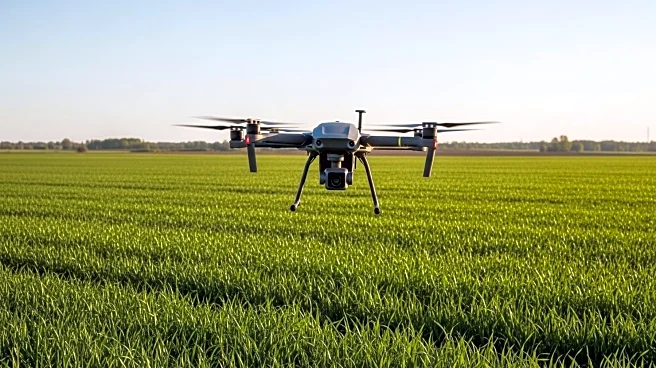What is the story about?
What's Happening?
The Agriculture and Food Security Ministry is establishing a national strategic system to monitor risks in food imports. This initiative is a response to recent events that highlighted Israel's vulnerability due to its heavy reliance on imported food supplies. The system aims to identify global risks that could disrupt food supply chains, using a model developed by the Institute for National Security Studies. The framework is part of the National Food Security 2050 Program, which seeks to shift from a reactive to a preventive approach in managing food security. The ministry plans to publish a draft of the national food security plan for public comment soon.
Why It's Important?
This development is crucial as it addresses the growing concerns over food security in Israel, especially in light of increasing international boycotts and climate change impacts. With over 90% of grains and fish, and significant portions of other food items being imported, Israel's food supply is highly susceptible to global disruptions. The new system aims to ensure functional continuity and prepare for potential crises by providing early warnings and policy recommendations. This proactive approach could stabilize food prices and availability, benefiting consumers and the economy.
What's Next?
The ministry will soon release the draft of the national food security plan for public feedback. This step is expected to engage various stakeholders, including policymakers, industry leaders, and the public, in refining the strategy. The implementation of this system may prompt other countries facing similar challenges to adopt comparable measures, potentially leading to a more resilient global food supply network.















